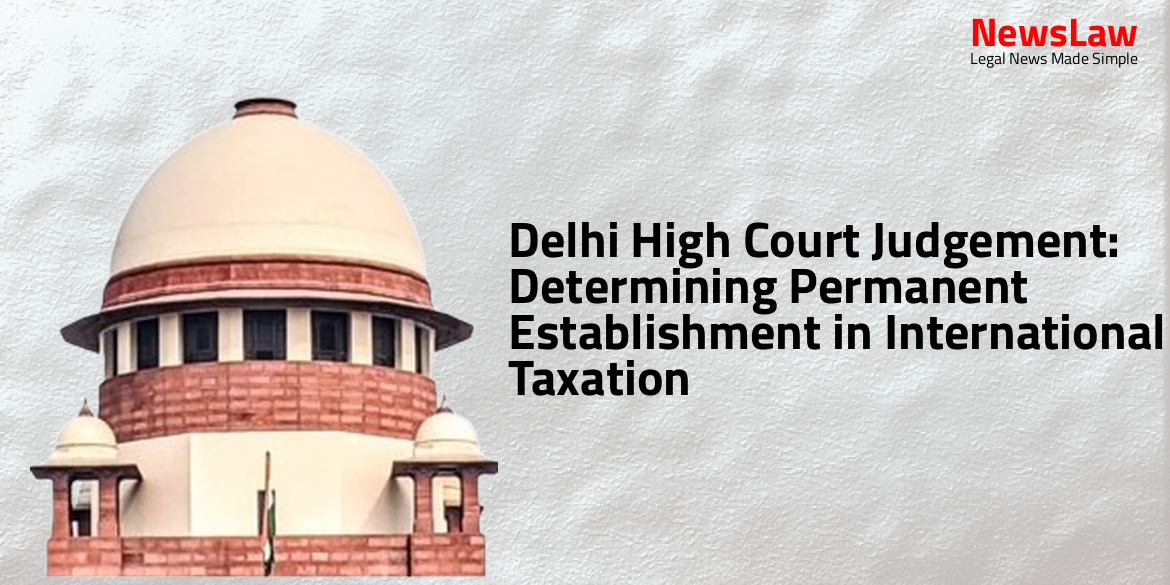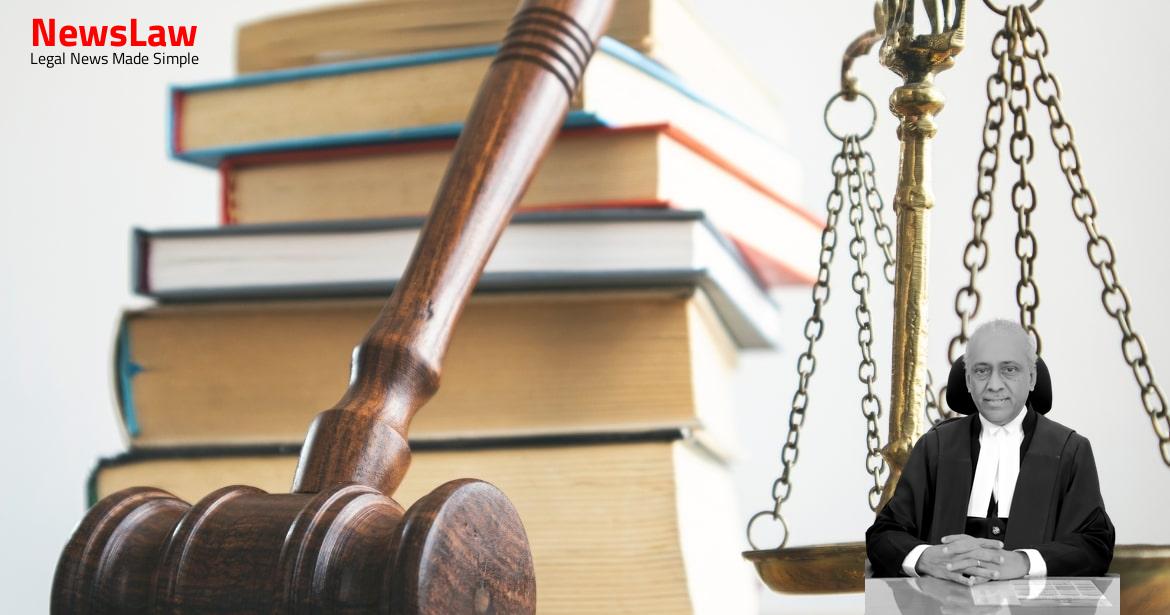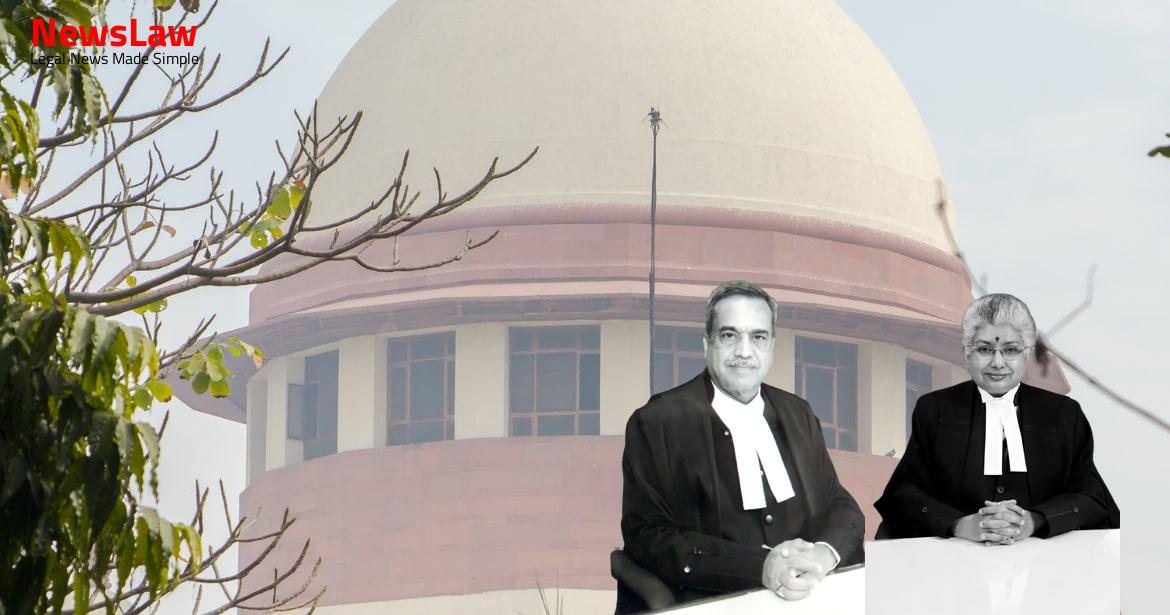In a significant ruling by the Delhi High Court, the case delves into the complexities of determining Permanent Establishment in the realm of International Taxation. The judgment sheds light on the jurisdictional challenges faced by foreign companies like Progress Rail Innovations Pvt Ltd in India. Let’s explore the nuanced legal arguments presented in this insightful decision.
Facts
- The assesses is a foreign company part of Caterpillar Group registered in the USA
- The main international transaction is the provision of technical support services
- The subsidiary Progress Rail Innovations Pvt Ltd is assessed in New Delhi
- The international transactions entered into by the assessee are tabulated
- The company provides back office and technical support services
- The petitioner is remunerated on a cost plus basis for the services provided
- The first respondent initiated penalty proceedings as the petitioner failed to submit returns
- The petitioner’s jurisdiction was transferred from fourth respondent to first respondent
- The first respondent issued notices under Section 148 of the Income Tax Act
Issue
- The fundamental question is whether a PE came into existence within the territorial area of EMD Locomotive Technology Pvt. Ltd.
- The invocation of Section 148 power needs examination to determine its justifiability.
Arguments
- Learned senior counsel argued that the Noida premises could not be considered a virtual projection of the holding company and that interrelated transactions were conducted at arm’s length.
- The services performed by the Indian subsidiary were similar to those in a previous Supreme Court case, E-Funds IT Solutions Inc., hence invoking Sections 147/148 of the Act was deemed illegal.
- The impugned notices lacked a prima facie view or recorded reasons for the charge of income escaping assessment, which was highlighted with reference to the Formula One World Championship vs. CIT case.
- The argument that PRIPL constituted a Fixed Place PE was challenged, as it was contended that no part of the Noida or Varanasi establishment was exclusively at the disposal of the petitioner.
- The contention that PRIPL was a Service PE under Article 5(2)(l)(ii) of the India-USA DTAA was disputed based on emails showing activities benefiting PRIPL, not controlled by the petitioner.
- Issues related to Permanent Establishment (PE) and Dependent Agent PE (DAPE) were questioned, emphasizing that the Indian subsidiary did not constitute a PE and was working independently.
- The jurisdictional aspect of initiating reassessment under Sections 147/148 of the Act was claimed to be incorrect, as the case was illegally transferred to Noida without proper authority.
- The claim that PRIPL was a virtual projection of the petitioner and constituted a DAPE was rebutted based on various factual points and legal precedents cited.
- The assertion that income exceeding Rs. 1 Lakh had escaped assessment was challenged, pointing out inconsistencies in the reasoning provided by the authorities.
- The argument for a Fixed Place PE in India was refuted by stating that the core activities of the petitioner were not carried out at the Noida or Varanasi locations.
- The TPO’s report and other materials were analyzed to show that they did not prove the core business activity of the petitioner was in Noida or Varanasi.
- The contention that the activities of PRIPL did not fall within the negative list as specified in Article 5(3) of the India-USA DTAA was disputed based on the distinct products manufactured by the petitioner and the subsidiary.
- The petitioner’s control over employees and operations in India, as well as the actions of PRIPL being for the benefit of the petitioner, were set against each other to argue against the existence of a viable PE or DAPE.
- Legal principles from Morgan Stanley and E-Funds IT Solutions Inc. were invoked to challenge the assumptions made regarding PE and DAPE in the current case.
- The entire action was criticized for being solely based on a survey of the Indian subsidiary’s premises, rather than substantive evidence proving the existence of a PE.
- Mr. Datar cited a decision in the context of the phrase ‘wholly or almost wholly for the enterprise’ in the India-USA DTAA to argue that the activities of the Indian subsidiary did not fall within that provision.
- Details of income derived by the Indian subsidiary from transactions with the petitioner between FYs 2011-12 to 2017-18 were presented.
- The argument was made that the activities of the subsidiary were not auxiliary or preparatory since it was assisting in the core services of the petitioner.
- The survey report forming the basis for the Section 148 notice stated that the subsidiary was functioning as a Fixed Place PE/Service PE/DAPE.
- References were made to emails, letters, purchase orders, cost audit report, and financial statements involving the petitioner and the Indian subsidiary.
- Cases of E-Funds IT Solutions Inc. and Samsung Heavy Industries Limited were distinguished as not applicable to the present case.
- The actions taken based on selectively extracted statements were questioned for fairness.
- The income percentage from the petitioner compared to other clients of the subsidiary was discussed to argue against a PE classification.
- The importance of finding habitual engagement in contracting authority for determining PE status was highlighted.
- The argument was made that a wholly owned subsidiary being subject to oversight by the holding entity should not automatically result in PE classification.
- Article 5(6) of India-USA DTAA was referenced to emphasize that subsidiary status alone does not constitute a PE.
- Passages from Permanent Establishment, Erosion of a Tax Treaty Principle were referred to in relation to subsidiary PE issues.
- The need for a prima facie conclusion before reassessment initiation was stressed.
- The ordinary meanings of ‘wholly’ and ‘almost wholly’ were discussed in the context of income percentage.
- The jurisdiction of the appropriate Assessing Officer in Delhi was mentioned if the subsidiary was considered a PE.
- Opinions from Authority for Advanced Ruling and historical background passages on PE were also discussed.
Analysis
- Permanent establishment includes various types of physical locations where business activities are conducted.
- Certain activities are deemed not to constitute a permanent establishment.
- Criteria for deeming a person to be acting on behalf of an enterprise in a Contracting State.
- Exceptions for when an enterprise is deemed to have a permanent establishment in another Contracting State.
- Clarification on the role of brokers, agents of independent status, and related enterprises in determining permanent establishment.
- Ownership or control of a company in one Contracting State by a company in another Contracting State does not automatically create a permanent establishment.
- The concept of a ‘permanent establishment’ postulates a substantial element of presence of a foreign enterprise in another country.
- Outsourcing services to India may not constitute a fixed place permanent establishment under Article 5 of a treaty if the main business activity is not carried out through a fixed business place in India.
- The presence of a permanent establishment must meet the test of being of an enduring and permanent nature.
- The Full Federal Court found that an Australian subsidiary was not a permanent establishment of the foreign parent where the subsidiary was substantially financed by loans from the parent.
- An Indian establishment performing functions of a ‘preparatory’ or ‘auxiliary’ character was considered in a case and compared with similar language in various Double Taxation Avoidance Agreements.
- With globalisation, economic activities spread across multiple tax jurisdictions.
- Principles governing Fixed Place PE were established in various cases including Morgan Stanley & Co. Inc., E-Funds IT Solution Inc., and Formula One World Championship Limited.
- A subsidiary allowing a parent company to operate from its premises may give rise to a permanent establishment.
- The concept of ‘habitually’ in Article 5(4)(a) in relation to concluding contracts was discussed.
- The assumption of jurisdiction is not sustainable.
- The opinion on the question of Permanent Establishment (PE) is not tenable even on a prima facie basis.
- It was necessary for the Court to ensure that the decision on PE was correctly decided or at least a plausible view.
- Without a decision against the petitioner on the PE question, the authority to proceed for the first respondent would not exist.
- The Court is unable to uphold the opinion as formed on the PE question.
- The view expressed by the first respondent in the impugned proceedings is not tentative and does not leave room for debate.
- The foundation of the impugned action is considered arbitrary and unsustainable.
- Since the foundation is faulty, the reassessment proceedings need to be quashed.
Decision
- The transfer of the PAN of the petitioner was solely to facilitate the first respondent conducting the reassessment.
- The jurisdiction of the PAN of the petitioner was transferred from the fourth to the first respondent, but this transfer is now quashed.
- The PAN mapping shall revert to the jurisdictional AO of the petitioner, namely the DCIT/ACIT, International taxation, Circle 1(1)(1), Delhi.
- All rights and contentions of parties regarding this matter are kept open.
- The respondents have the right to independently examine whether the office of the petitioner in the Delhi Circle constitutes a Permanent Establishment (PE).
- The impugned notices issued under Section 148 on various dates in 2019 are quashed as a result of this judgment.
Case Title: PROGRESS RAIL LOCOMOTIVE INC. (FORMERLY ELECTRO MOTIVE DIESEL INC.), Vs. DEPUTY COMMISSIONER OF INCOME-TAX (INTERNATIONAL TAXATION), CIRCLE – NOIDA & ORS. (2024:DHC:4331-DB)
Case Number: W.P.(C)-12407/2019



